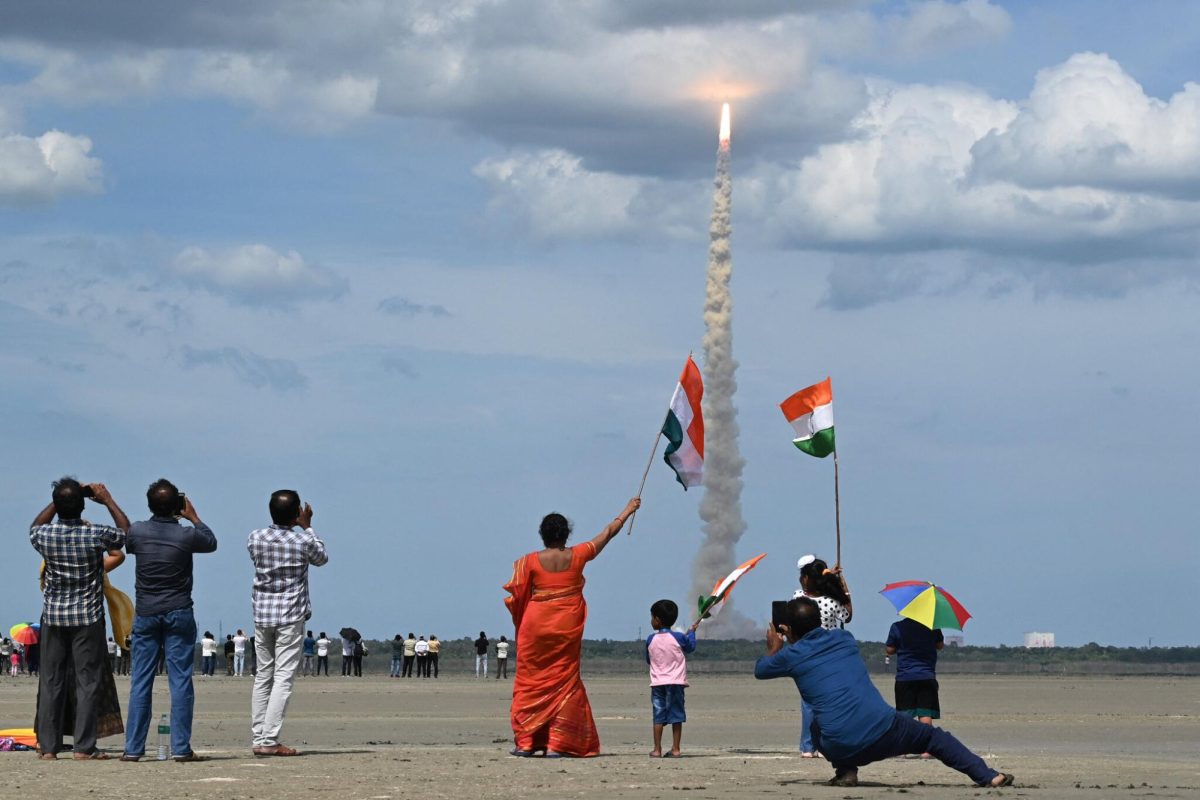On Aug. 19, Luna 25, a Russian spacecraft intended to land on the moon’s south pole, crashed into the moon. According to Yury Borisov, there was a problem with the spacecraft’s engines as the engines were on for 43 seconds longer than their plan while trying to correct the course of the spacecraft. With this failed landing, many have cited this as evidence of Russia’s geopolitical decline.
“The overstatement comes as a broader geopolitical narrative about Russia’s decline,” Nathan Warkentin, an astronomy enthusiast and math teacher, said. “The linkage between this crash and the nation’s decline is very weak. I think the crash of Luna-25 has more to do with the lack of funding for Roscosmos, an agency that once challenged the rest of the world to rise to new heights. But, this event does show the impact of the level of investment and engagement of the government in the space program.”
This was Russia’s first lunar mission in more than five decades. They aimed to land on the south pole of the moon, a valuable location due to the frozen water reserves. According to Buzz Aldrin, the second person to walk on the moon during the Apollo 11 mission, these reserves have oxygen and hydrogen that can be used to launch rockets from the moon towards Mars. Other nations, such as the US and China, plan to land on the lunar south pole before 2030.
One nation has already succeeded in landing on the lunar south pole. On Aug. 23, the Vikram lander, part of the Chandrayaan-3 mission, landed on the south pole of the moon, marking India’s first successful landing on the moon.
This goal is still a formidable challenge as recent events have shown. Although technology and our understanding of lunar physics have advanced significantly since the Apollo missions, there remain a multitude of factors that can impede a successful moon landing.
“I think this landing is definitely inspirational,” Ian Park (12), an aspiring scientist, said. “Success like this is definitely a step forward for humanity in terms of space exploration. Seeing this landing makes me feel hopeful about the other things we could accomplish in the near future.”
India’s successful lunar landing with the Chandrayaan-3 mission has resonated as a beacon of hope for nations looking to expand space programs worldwide. This monumental achievement demonstrates that with vision, innovation, and perseverance, countries do not need to be historical superpowers or possess vast resources to make their mark in space exploration. “Your success will power the imagination and light the future of people around the world,” the US State Department’s Bureau of Oceans and International Environmental and Scientific Affairs posted on X, tagging the Indian Space Research Organization.


